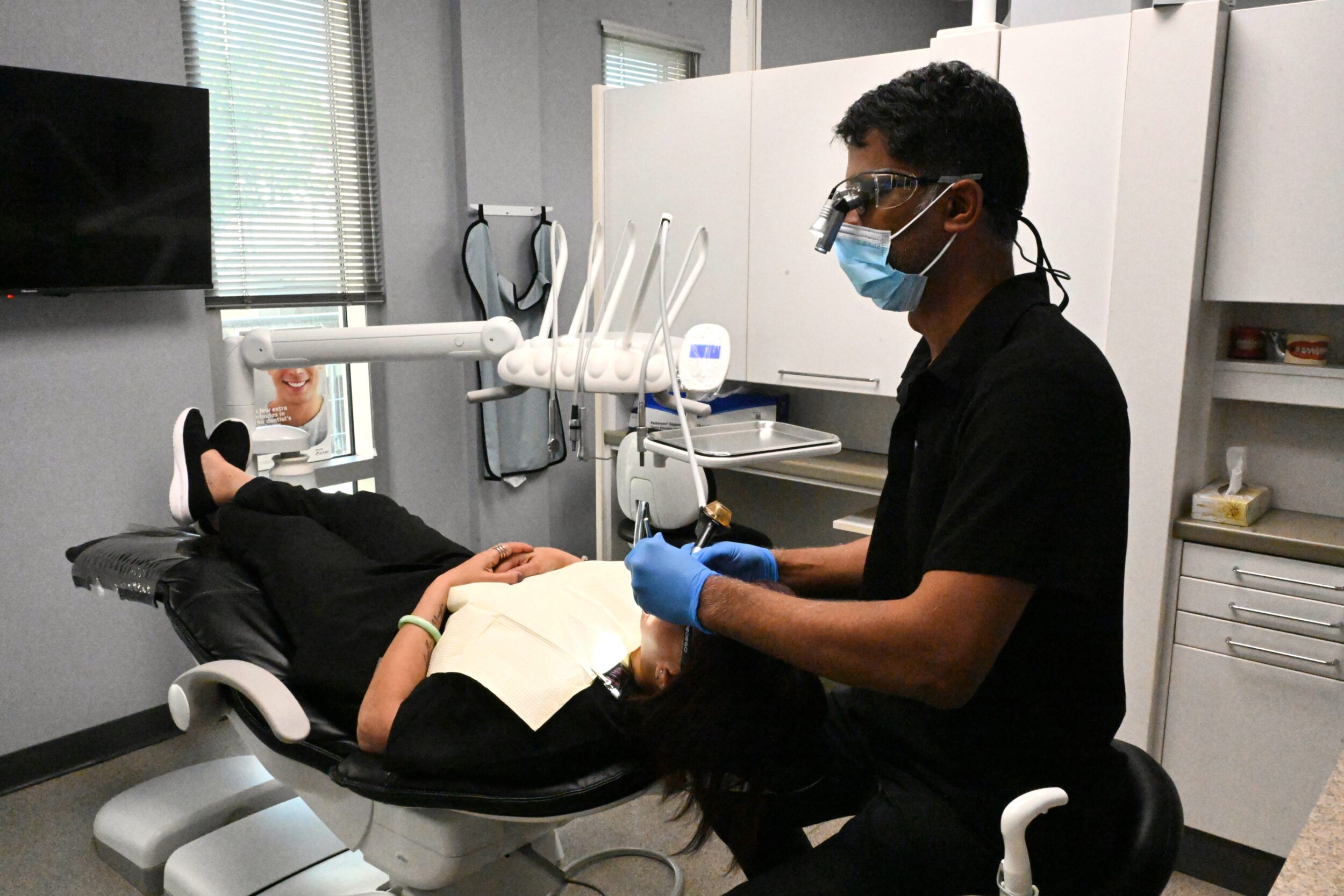Fluoride in Calgary, AB
Fluorine, a natural element found in fluoride compounds, has proven to be effective in preventing childhood cavities and tooth decay. There is fluoride in many popular toothpaste, oral gel, and mouthwash brands, as well as in most community water supplies. Although fluoride is an essential part of any good oral care routine, overconsumption can result in fluorosis. A pediatric dentist can monitor fluoride levels and ensure that children receive the right amount.

Fluoride prevents tooth decay in what ways?
There are two important functions that fluoride fulfills in dentistry. In the first place, it prevents mineral loss from tooth enamel, and in the second place, it promotes remineralization of enamel.
Consuming carbohydrates (sugars) causes oral bacteria to feed on them and produce harmful acids. The acids attack the enamel of the teeth – especially in children who take medications or produce less saliva. Cavities, tooth decay, and childhood periodontal disease are caused by repeated acid attacks. Childhood tooth decay is reduced by fluoride because it protects tooth enamel from acid attacks.
Fluoride is particularly effective when used in conjunction with good oral hygiene practices. Fluoride works best when sugary foods are reduced, brushing and flossing regularly, and visiting the pediatric dentist twice a year.
What is the right amount of fluoride?
Fluoride is usually found in community water supplies and toothpastes, so children should not consume too much of it. Therefore, children under the age of two should use a non-fluoridated toothpaste that is approved by the ADA. Two to five-year-old children should use a pea-sized amount of fluoridated toothpaste on a clean toothbrush twice daily. If they have any extra fluid after brushing, they should be encouraged to spit it out. Practice, encouragement, and time may be needed for this part.
Fluorosis is caused by the amount of fluoride children ingest between the ages of one and four years old. Fluorosis is characterized by white specks on the permanent teeth. Fluorosis is not considered a risk for children over eight, but they should still use toothpaste that is ADA-approved.
Is it necessary for my child to take fluoride supplements?
A pediatric dentist is the best person to determine whether a child needs fluoride supplements. First, the dentist will ask questions to determine how much fluoride the child receives, to learn about the child’s general health, and to determine how much sugar is in the child’s diet. The use of an at-home fluoride supplement may be recommended if a child does not receive adequate fluoride and is at high risk of tooth decay.
During a routine office visit, topical fluoride can also be applied to the tooth enamel quickly and painlessly. Topical fluoride is available in various forms, including foam, liquids, varnishes, and gels. A child may receive topical fluoride either by wearing specialized trays for several minutes or by painting it on with a brush, depending on their age and willingness to cooperate.
Please contact your pediatric dentist if you have questions or concerns about fluoride or fluorosis.